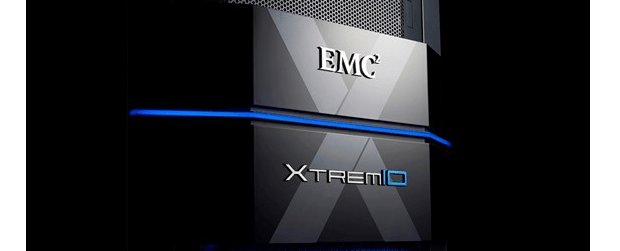Las Vegas, NV – HP is making significant strides today in an attempt to recapture the flash storage market with four announcements, including lowered cost per gigabyte and higher capacity, a new type of array, and flash-optimized data services.
At its Discover conference in Las Vegas today, the computing company said that it is lowering the cost of all-flash storage to $1.5 per usable gigabyte. This is 25 per cent lower than HP’s previous price point of $2, which the company had since June.
This is achieved thanks to new solid state drives that carry a capacity of 3.84, which HP claims to be the industry’s “largest capacity solid state drive in a tier-1 all-flash array.”
“We still have not seen the rest of the industry catch up in this area,” said Vish Mulchand, senior director of product management and marketing at HP Storage, referring to the price per gigabyte. He added that HP’s own SSD capacity was capped at 1.92 terabytes last year.
In the area of all-flash arrays, HP is releasing two models in a new 3PAR StoreServ 20000 line, namely the 20800 and 20850. Yet despite their shared nomenclature, the two have very different applications, according to Mulchand, in that the 2800 is a “converged flash array.”
“Many storage systems have what is known as disc design with flash added that aren’t optimized for flash,” said Mulchand. “With the 2800 we’re starting flash first, so it’s flash-focused, and customers can add spinning disc later depending on their workflow.”
He added that many flash vendors only focus on all-flash arrays like the 20850.
In terms of specs, both arrays tout eight scalable nodes. HP claims the 20850 is capable of delivering more than 3.2 million IOPS at “sub-millisecond latency” and “over 75 GBps of sustained throughput for maximum application performance.” Meanwhile, the 20800 scales up to 15 petabytes of usable capacity. Both are built on the HP 3PAR Gen5 Thin Express ASIC.
To top it all off, HP announced flash-optimized data services to improve data integrity and management.
3PAR Persistent Checksum, built on HP’s 3PAR Gen5 Thin Express ASIC architecture aims to maintain data integrity from the application server through the storage array for workloads, while protecting against flash media transmission errors.
There is also 3PAR Remote Copy support for asynchronous streaming replication, which now integrates with HP’s HP StoreOnce Recovery Manager Central software, and 3PAR Peer Motion support which allows for data movement for storage federation across multiple storage arrays for an “elastic resource pool.”
According to Mulchand, with all these technologies combined, flash storage could surpass disc storage in capacity for price.
“You can do compaction, deduplication, compression, because the flash performance is so much faster, these processes can work and not impact performance,” he said. “The usable capacity goes up higher.”
As for availability, HP has announced that the 3.84 TB cMLC SSDs are now available worldwide while StoreServ 20000 Storage Systems are orderable immediately and shipping in August 2015 starting at $75,000. Meanwhile, 3PAR StoreServ software features will only be available for 20000 systems and StoreOnce Recovery Manager Central for VMware (RMC-V) with 3PAR Remote Copy support will be available worldwide in June at no additional charge to customers with existing RMC-V or RM-V licenses and a valid support contract.




